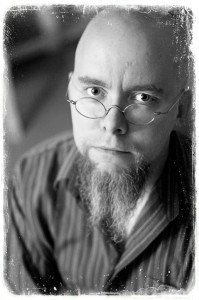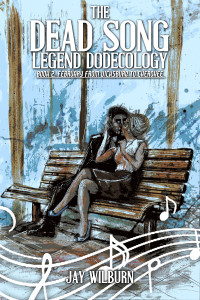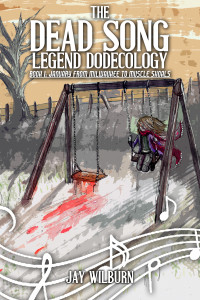I appreciate the opportunity to join in with the Blood Moon Rising 2 group. I’ve enjoyed meeting some authors that are new to me and learning more about others I have admired from afar. The posts have been good and interesting. It was a good use of the month dedicated to the fun of fear and darkness.
Facing fear is one positive use of any genre of fiction or literature more broadly. Horror is meant to paint in the colors and shades of fear. We can expand that to include all range of negative emotions. We can expand that further to use the darkness to accent the light. A horror story can have a happy or victorious ending, but it doesn’t have to. There are great stories of characters struggling for victory, but falling short.
Dystopian literature in particular addresses broad fears about ourselves and the fragile nature of what we have created personally and as a society. We see the trends of the world around us or of those that disagree with our vision of what the world should be. Dystopian literature serves to extrapolate out the end of that path going the way we fear it might go. In that story set in that feared future, we can explore abuses of power and the darkness of human nature. Typically we will also see the hero willing to fight back against that darkness even after it has appeared to have won.
Some readers are drawn to the dystopian out of a dark desire to imagine it all broken apart. There is an excitement there and almost wish fulfillment in some cases. That rises from fear too. We fear facing our jobs on Monday morning. We fear the struggle against a system we feel is stacked against us. We fear the abusive and the powerful winning. Dystopian literature represents a great purge of the setting to imagine those fears broken apart and the story can be about the price of that brand of wish fulfillment.
Whether we are writing about zombies, viruses, vampires, possessed puppets, or humans rising to become monsters, the stories are about the characters navigating those evils. They are about the fearful dealing with their own short comings. They may not present a neat answer or a clean victory, but the stories are about us, what we fear, and how we struggle against those forces within us and outside us.
At least, I believe the best horror deals with these things in some way. Maybe the best literature of any genre.
— Jay Wilburn, writer
Check out Book 2 of the Dead Song Legend by Jay Wilburn.
Jay Wilburn lives with his wife and two sons in Conway, South Carolina near the Atlantic coast of the southern United States. He has a Masters Degree in education and he taught public school for sixteen years before becoming a full time writer. He is the author of many short stories including work in Best Horror of the Year volume 5, Zombies More Recent Dead, Shadows Over Mainstreet, and Truth or Dare. He is the author of the Dead Song Legend Dodecology and the music of the five song soundtrack recorded as if by the characters within the world of the novel The Sound May Suffer. He also wrote the novels Loose Ends and Time Eaters. He is one of the four authors behind the Hellmouth trilogy. Jay Wilburn is a regular columnist with Dark Moon Digest. Follow his many dark thoughts on Twitter, Instagram, and Periscope as @AmongTheZombies, his Facebook author page, and at JayWilburn.com
before becoming a full time writer. He is the author of many short stories including work in Best Horror of the Year volume 5, Zombies More Recent Dead, Shadows Over Mainstreet, and Truth or Dare. He is the author of the Dead Song Legend Dodecology and the music of the five song soundtrack recorded as if by the characters within the world of the novel The Sound May Suffer. He also wrote the novels Loose Ends and Time Eaters. He is one of the four authors behind the Hellmouth trilogy. Jay Wilburn is a regular columnist with Dark Moon Digest. Follow his many dark thoughts on Twitter, Instagram, and Periscope as @AmongTheZombies, his Facebook author page, and at JayWilburn.com
Or begin the series with Book 1.







